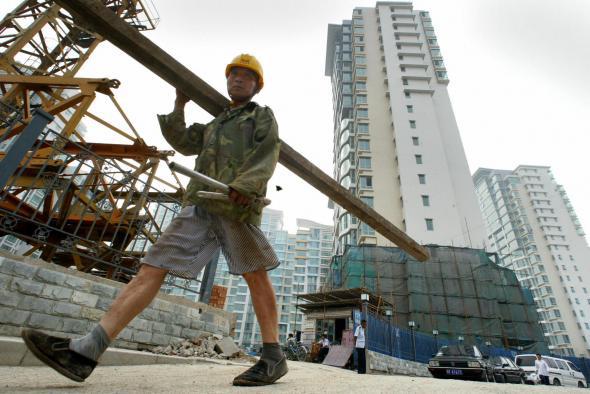If you look within individual countries, income inequality is clearly rising around the globe. But what happens if you forget about national borders and treat the world as one big, 7 billion-person whole? Flip the question that way, and some would argue that “Inequality Is Falling on Planet Earth,” as NPR declared in a headline last week. While “such a framing may sound startling at first, it should be intuitive upon reflection,” economist Tyler Cowen wrote for the New York Times in July. “The economic surges of China, India and some other nations have been among the most egalitarian developments in history.”
Writers have been making versions of this point for a while, usually as part of the argument that Americans and Europeans should calm down about the growth of inequality next door. For example, the same trade policies that helped decimate U.S. manufacturing employment and widened the American income gap are also the ones that made China’s factory workers’ far better off—and, supposedly, those changes have left the world a far more equal place. “Liberals should care about global welfare,” economist Scott Sumner once wrote at the Money Illusion. “Are they closet nationalists?”
Sick burn, professor. But here’s the thing: It’s not actually clear that global inequality is falling. The claim that the world’s income distribution is flattening out a little bit is usually based on the work of Branko Milanovic, an economist at the City University of New York’s Luxembourg Income Study Center. But in his latest paper, co-authored with the World Bank’s Christoph Lakner, Milanovic doesn’t say the income divide is shrinking around the world. He says we can’t really tell.
Why not? In the United States and much of Europe, economists have extremely detailed tax data at their disposal, which gives us a pretty precise picture of how income gets divvied up. But most countries don’t have those sorts of statistics. To get a comprehensive picture of inequality across the entire planet, researchers have to rely on national surveys, such as the U.S. census. As I’ve written before, there’s evidence that surveys tend to miss the richest households, making inequality look less severe than it really is.
There are lots of ways economists can try to adjust their data to account for these “missing rich.” But depending on how you do it, Milanovic and Lakner find that the small declines in inequality since 1988 showing up in the raw survey figures can shrink so much—once you start adjusting to account for the missing rich—that they become statistically insignificant. “Global inequality, measured by the Gini index, might not have gone down at all,” they write. (The Gini index is a statistic commonly used to measure economic inequality.) The issue, the pair concludes, requires more research.
Let’s stop to consider what Milanovic and Lakner are really saying. It is possible that even as India and China have pulled hundreds of millions of people out of poverty, the incomes of the global rich have risen enough that overall inequality hasn’t budged. If true, that’s astonishing.
In a way, the entire issue of whether inequality is falling the world over is a bit of a red herring. Most of the reasons that liberals worry about the income gap have to do with its effects inside individual countries: the way income inequality can tilt the political system in further favor of the rich; the way it might breed tense, unhappy societies; etc.* And while the rise of living standards in Asia may be a major moral point in favor of free trade, it’s not much of an argument against redistributing income in the U.S. or Europe. (Some, like Cowen, warn that higher taxes and a bigger safety net could lead to lower global growth, but recent evidence suggests just the opposite.)
At the same time, most can agree that the progress against poverty in China and India has been one of the great developments of the past 30 years. The real question, as Matt Yglesias wrote here in January, is whether there needs to be “a zero-sum trade-off between the interests of the American middle class and Asian peasants.” But the idea that global inequality is on the wane may just be a bogus factoid—an artifact of incomplete data, and nothing more.
Update, Aug. 18, 2014: The link in this sentence has been replaced to better corroborate the argument that income inequality can make societies less happy.
